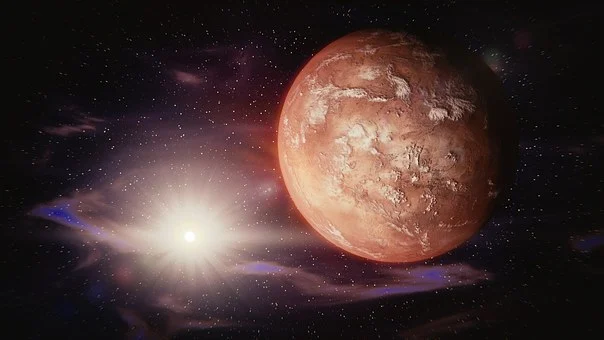Can Humans Live on Mars?
- Yujin Park

- Dec 19, 2020
- 3 min read
The colonization of Mars has been a long standing argument that has evolved over the past decades. After Earth, Mars is the most tenable planet in our close planetary system. Although there are still vast areas of information about Mars that are yet to be discovered, scientists have made massive progress. While the possibility of humans living on Mars brings forth many advantages, there are also some negative underlying consequences. Keep reading for all the pros and cons of life on mars.

(Image taken from Pixabay, Copyright free)
There are several reasons for why it is vital for humans to populate Mars. Arguably the most important one is the scarcity of resources, such as room, compared to the rapidly growing population. There are limits to the life-sustaining resources earth can provide us. By having a portion of the population settle on Mars, we can reduce the possibility of human extinction.
Another notable criteria of Mars that makes the planet a strong contender for human colonization is its similarity with Earth. Both Earth and Mars have four seasons, and the duration of a single day on Mars is similar to the duration of a single day on Earth. Moreover, gravity on Mars is 38% that of our Earth's, which is accepted by individuals to be adequate for the human body to adjust to.
Furthering the exploration of Mars brings economic benefits as well. There is a plenitude of rare metals on Mars, for example, platinum and gold. Delivery from Mars to Earth is a lot more convenient than the opposite way around. Also significantly promising is the vicinity of the space rock belt to Mars. Dactyl, the moon circling the space rock Ida, is 1.4 kilometers in distance across, yet it contains more iron than humankind has utilized in its whole presence. These space rocks could be mined close to Mars and transported from the planet for little expense. Based on these resemblances, it is evident that planet Mars can become a turning point for the future human population.
Unfortunately, this quest comes with the possibility of detrimental outcomes. While astrobiologists put forth a valiant effort to get ready for and limit those dangers, there is consistently a chance of something taking a turn for the worse. When scientists talk about the negatives of mars colonization, the ethical components are usually brought up. On the off chance that people do in the long run land on Mars, they would not show up alone. They would convey with them trillions of their earthly microbes. There is no method of realizing how our microorganisms may respond with the weak Martian environment beforehand. Therefore, humans could, in the long run, contaminate Mars and its atmosphere.
With the pros and cons being said, astrobiologists, scientists, organizations, and associations are continuously proposing plans for human missions to Mars. While this extensive journey to Mars may seem like a process that can only happen in the far future, the possible colonization of Mars is actually much closer than we think. Elon Musk, CEO of SpaceX, mentioned how a million humans could be living on Mars in the very near future, specifically the 2060s.
Sources:
Colosimo, April. “Benefits and risks of Mars Colonization.” 2019. blogs.library.mcgill.ca, https://blogs.library.mcgill.ca/schulich/mars-colonization/.
Nichols, Megan Ray. “If we successfully land on Mars, could we live there?” 2017. Astronomy.com, https://astronomy.com/news/2017/05/could-we-live-on-mars.
Bharmal, Zahaan. “The case against Mars colonisation.” 2018. theguardian.com, https://www.theguardian.com/science/blog/2018/aug/28/the-case-against-mars-colonisation.



Comments